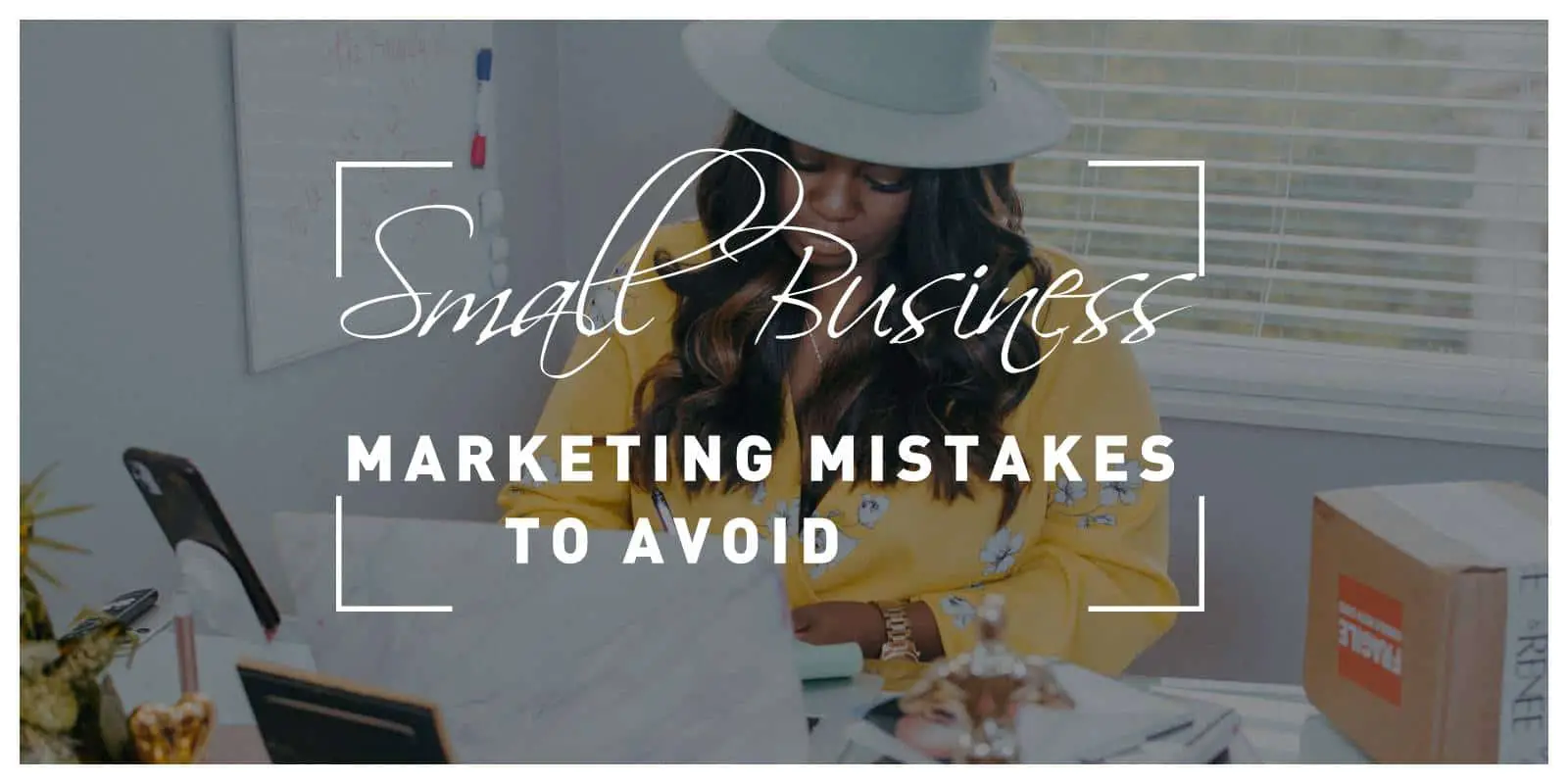Marketing can make or ruin any firm, regardless of industry. That’s why organizations invest so much time and effort in building a successful marketing strategy – but if you believe marketing success is just dependent on clever planning and doing the right things, think again.
To succeed in marketing, you must be well-versed in what to do and what not to do. This is particularly true for small enterprises, which are already stretched tight and have a narrow margin for error.
Here are five of the most typical marketing blunders that every small company marketer should avoid to maximize the effectiveness of their efforts.
1. Everyone’s Retargeting

The most common eCommerce marketing error is retargeting every bounced visitor. No matter how excellent your product is, not every visitor to your site intends to buy.
According to a Bayard Institute research, 58.6 percent of US online consumers abandoned a basket merely because they were not ready to purchase, with most of these window-shoppers clicking away even before initiating the checkout flow.
You’re squandering your resources if you include these folks in your retargeting efforts, most of whom have demonstrated no genuine Interest in purchasing your items. It’s like banging on an empty home door; no matter how loud you shout, no one will open it. Don’t make this error.
Instead, divide your bounced visitors into separate groups based on how many pages they’ve seen, how much time they’ve spent, whether they’ve visited a specific product category, and so on, and retarget appropriately.
Don’t squander your retargeting investment on people who left your home page in a matter of seconds without seeing a single category page. Targeting every visitor may not boost your income, but it will raise your expenditures.
2. Ignoring Your Website
Your website is the digital representation of your company. It mirrors your physical presence, if you have one, and sets the tone for what consumers might anticipate while doing business with you.
When you ignore your website, you not only risk turning away prospective clients who may believe your company is no longer open or is poorly managed, but you also harm your SEO, which means you will get less traffic from search engines over time.
“Taking proactive actions to maintain your site clean and working properly may assist buffer against external variables, supporting your long-term objectives for your site and marketing plan,” according to Search Engine Journal. This is referred to as “SEO hygiene” —, the regular conduct of inspections and duties to ensure that your website looks and performs optimally.
Here are some recommended practices for excellent SEO hygiene from Search Engine Journal that small firms may use:
- Keep your website’s code clean;
- ensure its mobile-friendly; and
- handle any redirect concerns.
You’ll also want to ensure your page load time is as short as possible to retain people on your site and achieve good SEO performance.
If you manage your website on your own, set aside some time at least once a month to check for broken links and, if necessary, update website material such as your contact information and hours of operation.
Hire an SEO consultant to assist you in checking for technical SEO problems regularly — at least once every six months — and make a yearly effort to change your branding, graphics, and message to keep your site feeling new.
3. Exhausting Your Audience

While many small company owners may not produce enough material due to time and money restrictions, others might be guilty of producing too much – and generally on the same channel.
Without a strong marketing staff or content marketing through blogger outreach services, it’s fair to want to concentrate on one or two channels, such as email or Facebook. However, although it is essential to get your message out there and increase brand recognition, you must avoid overwhelming your audience, or they will quit. According to a Good Firms study, 42% of consumers unfollow companies that produce too much information.
“To occupy enough of their head space to close a sale, you must consistently remind contacts and connections of your worth.” “However, you must do it in a manner that does not ‘exhaust’ them,” marketing gurus at The Paperless Agent say. “Good marketers employ various communication channels to keep engaged with their consumers to avoid that weariness.”
Make sure you’re using a multichannel strategy to remain in contact with clients — for example, email, SMS, Facebook, and your corporate newsletter — and don’t rely too much on any channel.
4. Failure to Differentiate Your Product or Service
It is uncommon for a company to invent its category or a previously unseen product or service. Small firms face competition in most areas, so they must express their distinct value proposition- why they are different. It would be best if you had a strong rationale that is simple to articulate and provides individuals with a compelling cause to do business with you rather than your competition.
Instead of only selling to prospective clients, use your marketing to educate them. Educating customers in a manner that identifies what sets you apart from the competition makes it simpler for them to make a purchasing choice. If you can’t explain why your product or service is unique, you can’t expect a prospective consumer to.
5. You Have No Idea What Your Rivals Are Doing in Marketing

Please keep track of what your rivals are doing in marketing and research their efforts to determine which projects work and which fail. Are there any strategies they tried and then never used again? Which do they use every month?
To better understand the best SEO or PPC strategy for your company, use a tool like Spyfu. Google Alerts is another easy service that allows you to remain up to speed with real-time information on your nearest competition.
By paying attention to your competitors’ marketing activities, you may learn from their successes and mistakes and effectively utilize your marketing resources to discover new clients.
Conclusion
To avoid some of the typical minor company marketing blunders, keep your branding and message current, don’t overload your audience with material, and distinguish your product or service. Furthermore, keep up with what your rivals are doing so that you may benefit from their triumphs and mistakes.

